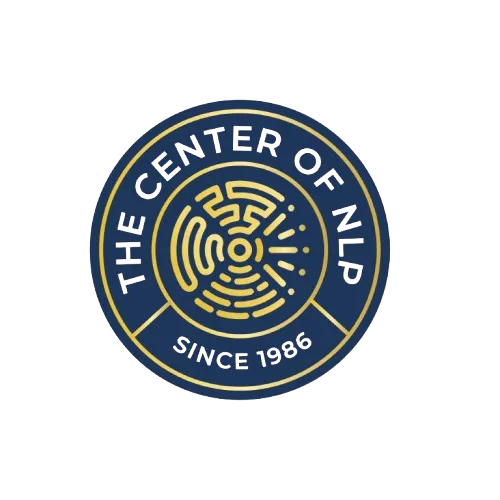
Enhancing Emotional Intelligence through Neuro-Linguistic Programming
Neuro-Linguistic Programming (NLP) techniques have gained significant attention recently due to their potential to enhance emotional intelligence. Emotional intelligence isidentifying, understanding, and managing emotions effectively. By combining insights from psychology, linguistics, and neuroscience, NLP offers practical tools and strategies to improve emotional intelligence. In this article, we will explore essential NLP techniques and how they can be applied to enhance emotional intelligence.
1. Introduction
Emotional intelligence is crucial in various aspects of life, including relationships, communication, and personal well-being. It encompasses self-awareness, self-regulation, empathy, and social skills. Neuro-Linguistic Programming,a methodologydeveloped in the 1970s, offers a range of techniques and approaches to help individuals improve their emotional intelligence. By understanding and applying NLP techniques, individuals can develop self-awareness, manage their emotions effectively, and build stronger connections with others.
2. Understanding Emotional Intelligence
Emotional intelligence refers to recognizing and understanding emotions in oneself and others. It involves being aware of one's emotions, managing them appropriately, andutilizingemotional information to guide thinking and behavior. Individuals with high emotional intelligence often resolve conflicts, empathize with others, andmaintainpositive relationships.
3. What is Neuro-Linguistic Programming (NLP)?
Neuro-Linguistic Programming, or NLP, is a powerful approach that explores the relationship between language, patterns of thought, and neurological processes. It provides techniques to understand and influence the mind-body connection and improve communication and personal development. NLP draws upon various principles, such as modeling successful behaviors, understanding subjective experience, andutilizinglanguage patterns to create positive change.
4. The Link between NLP and Emotional Intelligence
NLP and emotional intelligence are interconnected. NLP techniques provide practical tools to enhance emotional intelligence byfacilitatingself-awareness, improving communication, and transforming limiting beliefs and behaviors. By incorporating NLP into one's personal growth journey, individuals can develop a deeper understanding of their emotions, enhance their ability to regulateemotionsandestablishrapport and empathy with others more effectively.
5. NLP Techniques for Enhancing Emotional Intelligence
5.1 Anchoring
Anchoring is a technique used in NLP to associate a specific emotional state with a gesture, touch, or word. Individuals can quickly access desired emotional states when needed by consciously creating and activating anchors. This technique helps manage emotions, such as boosting confidence or reducing anxiety, by triggering positive states associated with the anchor.
5.2 Reframing
Reframing involves shifting the perspective or meaning of a situation or experience. Through NLP, individuals can reframe negative or limiting beliefs and reinterpret them to be more empowering. This technique allows for a shift inperception, enabling individuals to respond to challenges and setbacks more positively and constructively.
5.3 Rapport Building
Rapport building is essential for effective communication and building connections with others. NLP provides techniques forestablishingrapport, such as mirroring body language, matchingtonalityand pace of speech, and using similar language patterns. Developing rapport helps create trust, understanding, and empathy, facilitatingbetter relationships.
5.4 Visualizations and Guided Imagery
Visualizations and guided imagery are potent tools in NLP for enhancing emotional intelligence. Individuals can activate positive emotions and enhance motivation by vividly imagining positive scenarios or desired outcomes. Visualizations help individuals align their thoughts, emotions, and actions toward achieving their goals.
5.5 Language Patterns
Language patterns in NLP offer ways to communicate effectively and influence others positively. Techniques like using presuppositions, metaphors, and reframing language patterns canfacilitatebetter understanding, resolve conflicts, and encourage cooperation. These language patterns enhance emotional intelligence by improving communication and fostering empathy.
Submodalitiesare the sensory components of our internal representations. In NLP, individuals can learn toidentifyand modifysubmodalitiesto influence emotional states and responses. By understanding how different sensory components affect emotions, individuals can reframe and transform negative emotions into more resourceful states.
5.7 Belief Change Techniques
Beliefsgreatly influenceemotional responses and behaviors. NLP offers techniques toidentifyand change limiting beliefs that hinder personal growth. Through processes like belief change patterns and timeline therapy, individuals can replace disempowering beliefs with empowering ones, promoting emotional well-being and personal development.
Join our vibrantNLP Communityto build rapport and enhance your interpersonal connections.
6. Application of NLP Techniques in Daily Life
NLP techniques for public speakingcan be applied to enhance emotional intelligence in various aspects of life. In personal relationships, individuals can use anchoring to cultivate positive emotional states andreframingto foster understanding and empathy. In professional settings, rapport-building techniques and effective language patterns canfacilitatebetter communication and collaboration. NLP techniques also find application in areas like leadership development, public speaking, and stress management.
7. Benefits of Enhancing Emotional Intelligence through NLP
Enhancing emotional intelligence through NLP offersnumerousbenefits. It enables individuals to develop greater self-awareness,improvingself-regulationand emotional management. NLP techniques enhance interpersonal skills,facilitatingstrongerrelationshipsand effective communication. By embracing NLP, individuals can cultivate resilience, overcome challenges, and lead more fulfilling lives.
8. Challenges and Limitations of NLP
While NLP provides valuable tools for enhancing emotional intelligence, it is essential to recognize its limitations. NLP is a subjectivemethodologyand may not have scientific consensus or empirical evidence for all its techniques. Additionally, the effectiveness of NLP may vary from person to person, and results depend on individual commitment and practice.
For inquiries and further information, kindly reach out via email to [email protected]
9. Conclusion
Neuro-Linguistic Programming (NLP) techniques offer a practical pathway to enhance emotional intelligence. By incorporating NLP techniques into daily life, individuals can develop better self-awareness, regulate emotions effectively, and build meaningful connections with others. NLP provides tools, including anchoring, reframing, rapport-building, and language patterns, that empower individuals to enhance their emotional intelligence and lead more fulfilling lives.
Frequently Asked Questions (FAQs)
Can anyone learn NLP techniques to enhance emotional intelligence?
Absolutely! NLP techniques are accessible to anyone willing to learn and practice them.WIndividualscansignificantly enhance their emotional intelligence through NLP. with dedication and commitment
AreNLP techniquesscientificallyvalidated?
While NLP techniques have been widely adopted and practiced,it'simportant to note that not all techniques have scientific consensus or empirical evidence. However, many individuals have reported positive results fromapplyingNLP.
How long does it take to see results when using NLP to enhance emotional intelligence?
Thetimeframefor seeing results varies from person to person. It depends on factors such as individual commitment, practice, and the complexity of addressing emotional challenges. Consistent application of NLP techniques over time can lead to noticeable improvements in emotional intelligence.
Can NLP techniques be used for overcoming specific emotional issues or traumas?
NLP techniques can be beneficial in addressing emotional issues; however, it is essential to seek professional guidance when dealing with significant traumas or psychological conditions. A trained therapist or counselor can provideappropriate supportand guidance.
Where can I learn more about NLP and its application in enhancing emotional intelligence?
Numerous resources are available to learn about NLP and its application in enhancing emotional intelligence. Books, online courses, and workshops conducted bycertified NLP practitionersare excellent starting points for gaining a deeper understanding of NLP techniques.
Check Out For more:

